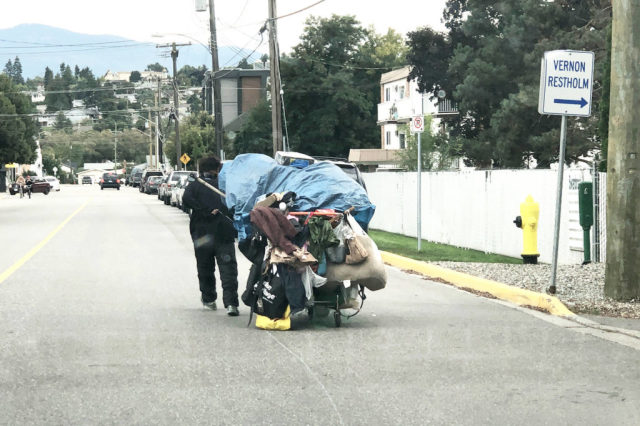Vagrancy is the condition of homelessness without regular employment or income. Vagrants usually live in poverty and support themselves by begging, garbage scraping, petty theft, temporary work, or welfare (where available).
Historically, vagrancy in Western societies was associated with petty crime, begging and lawlessness, and punishable by law by forced labor, forced military service, imprisonment, or confinement to dedicated labor houses. A person who experiences this condition may be referred to as a vagrant, vagabond, rogue, tramp or drifter.
Vagrants have been historically characterised as outsiders in settled, ordered communities: embodiments of otherness, objects of scorn or mistrust, or worthy recipients of help and charity.
Some ancient sources show vagrants as passive objects of pity, who deserve generosity and the gift of alms. Others show them as subversives, or outlaws, who make a parasitical living through theft, fear and threat.
Some fairy tales of medieval Europe have beggars cast curses on anyone who was insulting or stingy towards them. In Tudor England, some of those who begged door-to-door for "milk, yeast, drink, pottage" were thought to be witches.

